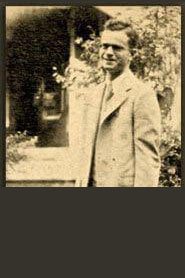 Semi-truck accidents are different. Not only do semi-truck accidents often result in catastrophic injuries, but the trucking companies have deep pockets and a legal team behind them. Their insurance company will aggressively defend these cases and do whatever they can to limit their liability.
Semi-truck accidents are different. Not only do semi-truck accidents often result in catastrophic injuries, but the trucking companies have deep pockets and a legal team behind them. Their insurance company will aggressively defend these cases and do whatever they can to limit their liability.
Semi-trucks and other commercial vehicles make up a large percentage of traffic throughout the United States. According to the Federal Motor Carrier Safety Administration, there were approximately 510,000 police-reported crashes involving large trucks in 2019, and almost 30% of those resulted in injury.
There are many important factors to investigate in truck accidents, including scene investigation and insurance investigation. At Keller & Keller, our team has been fighting insurance companies and large corporations since 1936, and we will not stand down. In addition to our zero-fee guarantee and executive treatment at Keller & Keller, our truck accident experience will be critical to your case. Our knowledge of the special laws regulating semi-trucks and their drivers, as well as our ability to locate the potential of “multiple policies,” is what sets us apart.
Most Common Types of Truck Accidents
Truck accidents can be caused by driver negligence, truck malfunction, negligent maintenance of the truck, or a combination of these issues. Again, because of their sheer size, there are many different types of accidents that can result, including:
- Rear-end collisions
- T-Bone or side-impact collisions
- Head-on collisions
- Rollover accidents
- No-Zone accidents
For more information about what to do after a truck accident, download our free book, Free Truck Accident Guide Book.
Federal Motor Carrier Safety Administration (FMCSA)
Established in January 2000, the FMCSA was created by the Department of Transportation with the goal of reducing the number of injuries and deaths resulting from semi-truck accidents.
Semi-truck drivers and the companies that own the trucks are held to an entirely different standard than other vehicles on the roadway. A quick look at the FMCSA's rules and regulations is evidence enough that your accident will need to be given special consideration, especially with regard to legal implications.
Unique Differences Between Car & Truck Accidents
- Size and weight: Trucks are much larger and heavier than passenger vehicles, which can make them more dangerous in the event of an accident. The size and weight of a truck can also make it more difficult to stop or maneuver, increasing the likelihood of an accident.
- Damage and injuries: Because of their size and weight, truck accidents often result in more severe damage to vehicles and more serious injuries to drivers and passengers.
- Cause of accidents: There are many factors that can contribute to truck accidents, including driver fatigue, improper training, equipment failure, and poor vehicle maintenance.
- Legal considerations: Truck accidents often involve complex legal issues, such as determining fault and liability, that may not be present in car accidents. In addition, federal regulations apply to trucking companies and their drivers, which can further complicate legal proceedings.
- Insurance: Trucking companies typically carry much higher levels of insurance coverage than individual drivers, which can affect the settlement process in the event of an accident.






























